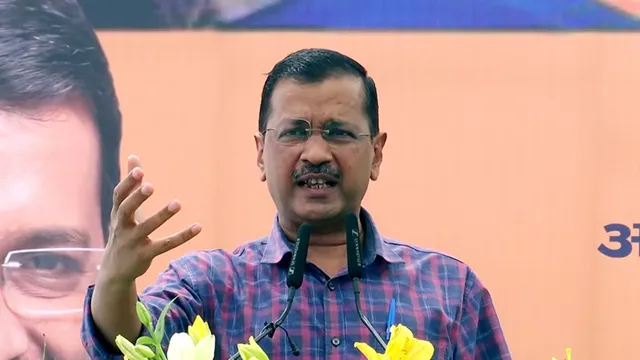- By Kamal Kumar
- Mon, 24 Jun 2024 04:29 PM (IST)
- Source:JND
Arvind Kejriwal Bail Plea: The Supreme Court on Monday called the Delhi High Court's decision to stay Arvind Kejriwal's bail order as 'unusual', observing that such orders are normally not reserved, but rather passed on the same day. A vacation bench of the Supreme Court, consisting of Justice Manoj Misra and SVN Bhatti, made the observation while hearing the Delhi Chief Minister's petition protesting the HC's stay on his bail in the Delhi excise policy case.
This came after Delhi Chief Minister on Sunday moved the Supreme Court against a Delhi High Court's interim stay on his bail. Earlier, CM Kejriwal was granted bail by a court of Judge Niyay Bindu last week. However, the High Court stayed the bail order until it decided on a plea moved by the Enforcement Directorate.
During Monday's proceedings in the apex court, Justice Misra on the High Court's stay said: "It's unusual."
ALSO READ: ‘Let High Court Pass Order’: No Relief For Arvind Kejriwal As SC Posts His Bail Plea For June 26
However, the vacation bench did not provide any fresh relief to Kejriwal, saying that pronouncing any order at this stage would be prejudging the issue.
"We will be pre-judging the issue, if we pass any order at this stage. It is not some other court but the high court," the bench told Arvind Kejriwal's counsel Abhishek Manu Singhvi.
The top court then deferred the hearing till June 26.
Singhvi had urged the vacation bench to remove the interim stay granted by the High Court. Arguing that Delhi CM was not a flight risk, he said that Arvind Kejriwal should be allowed bail till the High Court pronounces its order.
ALSO READ: Arvind Kejriwal Approaches Supreme Court Against Delhi HC Stay Order On His Bail
On Thursday, Delhi’s Rouse Avenue Court granted bail to Kejriwal on a bond of Rs 1 lakh, which was to be submitted to the duty judge the following day. However, the stay order on Kejriwal’s bail came after the Enforcement Directorate (ED) requested a pause on the order, seeking 48 hours to allow time to challenge the bail decision in a higher court.

